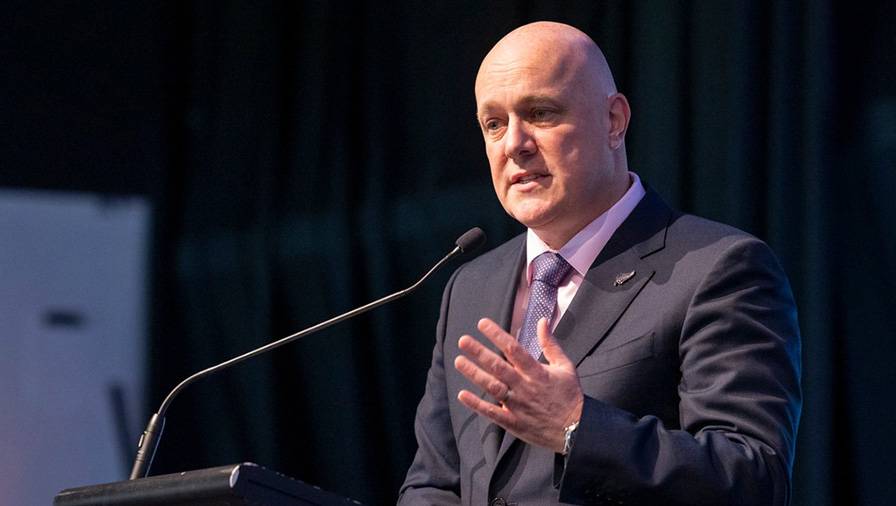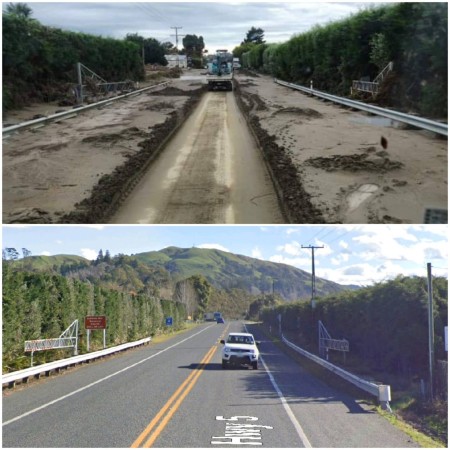Political neutrality, the consultants’ gravy train, resilience
ANALYSIS: The National Party would have sacked Steve Maharey and Ruth Dyson.
NBR columnist Grant Walker speaks with Brent Edwards.
ANALYSIS: The National Party would have sacked Steve Maharey and Ruth Dyson.
NBR columnist Grant Walker speaks with Brent Edwards.
Sacking Rob Campbell as chair of Health New Zealand and of the Environmental Protection Authority has opened a can of worms for the Government.
It has raised questions about other appointees to government jobs, with former Labour ministers Steve Maharey and Ruth Dyson coming under scrutiny.
Maharey is chair of ACC, Pharmac, and Education NZ. He outed himself by phoning the Prime Minister’s Office to offer up the fact he had written critical things about the National Party in columns he wrote for Stuff.
At the time neither Prime Minister Chris Hipkins nor National Party MPs had seen the offending articles.
Based on the response to Campbell’s indiscretion on LinkedIn, when he savaged National’s Three Waters policy, Maharey was in obvious breach of the code of conduct used to get rid of Campbell.
In fact, Maharey did the right thing and offered his resignation. But, according to this Government, contrition is a great thing.

Steve Maharey kept his government jobs.
Given he said sorry and said he would never do it again – in contrast to Campbell’s belligerence – Hipkins has decided Maharey can keep his job. It was based on advice from Public Service Commissioner Peter Hughes, that Maharey’s breach of the code was “unwise” but at the “lower end of the spectrum”.
In the case of Dyson, who is deputy chair of the Earthquake Commission and of Fire and Emergency New Zealand, it appears ignorance may have saved her. She made the startling admission that she had never read the code of conduct governing her position as a Crown entity board member, so had no idea about the need to remain politically neutral. So, she has tweeted critical comments about National as well.
Neither Hipkins nor Public Service Minister Andrew Little were impressed that Dyson had not read the code but, that aside, it appears ignorance is bliss.
Had the Government sought to display some consistency, though, it surely would have removed both Maharey and Dyson from their roles. National leader Christopher Luxon is clear he would sack both.
While Hughes and the Government might argue their transgressions are not as serious as those of Campbell, it leaves the appearance there is one rule for some government appointees and another for those who were former members of a Labour government.
But pity the next board member to step out of line. It is unlikely any government will be able to exercise such tolerance to future transgressions.
Government appointments to boards was not the only thing exercising the National Party’s mind this week. It also got hot about how much is being paid to consultants and has promised to bring an end to the government consultancy gravy train.
The money it saves will then pay for the party’s policy to provide bigger subsidies to childcare.
Its announcement, though, has not been without hiccups, with Luxon talking about getting rid of many of the communications team in the Ministry of Health, when he really meant Te Whatu Ora/Health NZ.

National Party leader Christopher Luxon.
National has made a beeline for the big four consultancy firms – EY, KPMG, Deloitte, and PwC – with its public service spokesperson Simeon Brown saying these four have been paid more than $300 million in total since Labour came to power.

The 'big four'.
“Deloitte is the biggest beneficiary of Labour’s wasteful and undisciplined spending on premium consultants, with the company earning a whopping $115.8m since Labour first became the Government,” Brown said.
It might be news to Deloitte and the other three consultancy firms that spending on their services had been a waste of money.
But the big four firms are not the only ones National has in its sights. It is now also after the banks, joining the Green Party in demanding a select committee inquiry to see if the banking market is truly competitive.
As it is, the Government is considering getting the Commerce Commission to do a market study into the banking sector, which would be more rigorous than a select committee inquiry.
A select committee inquiry might enable parties to play politics over bank profits and fees, but will not necessarily provide the deep and broad overview of the banking sector that is needed.
Meanwhile, the damage wrought by Cyclone Gabrielle seems to have prompted – these are NBR presenter Grant Walker’s words – an “about face” by the Government on climate and its spending on roads.
Based on comments Hipkins has made, there will be less climate-related spending from the transport budget and more on resilience as roads and rail damaged by the cyclone are repaired to a state better and stronger than before.

Government transport policy will focus on making roads more resilient.
Comments around the Government’s draft National Policy Statement on Transport (NPST) prompted a round of media speculation about differences between Hipkins and his Transport Minister Michael Wood.
Hipkins was asked at his post-Cabinet news conference whether Wood misspoke earlier that day when he did not rule out turning some roads into cycleways and busways.
The Prime Minister said he too was a fan of cycleways and busways but that the Government had to keep investing in roads, given what had happened in the past couple of months.
“Michael Wood was speaking, of course, to the draft that was previously released. That’s generally what ministers do until there’s been a change in that. I think there will be a change,” Hipkins said.
So, was climate change going to be the top priority around transport planning and funding?
“It’ll still be in there but, as I’ve said, resilience is going to be right at the top of the priority list,” Hipkins replied.
Brent Edwards is NBR’s political editor.